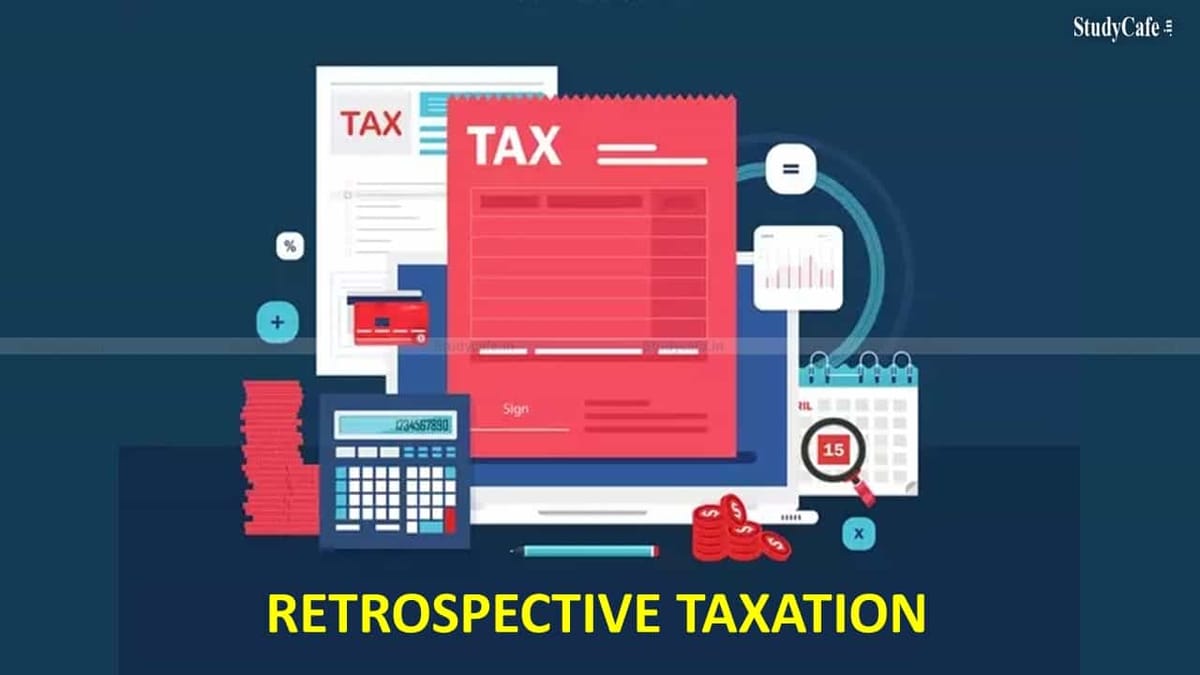RETROSPECTIVE TAXATION IN INDIA - THE TAXATION AMENDMENT BILL, 2021
TaxBlock | Aug 28, 2021 |

RETROSPECTIVE TAXATION IN INDIA – THE TAXATION AMENDMENT BILL, 2021
The finance amendment Act, 2012 introduced retrospective taxation in India with a objective to impose tax on deals executed after 1962 involving transfer of shares in foreign corporations which had existing assets in India. Ideally retrospective tax was enacted to make adjustments when the policies in the past with that of present are so different that tax which was paid earlier is now compared to be less.
Retrospective taxation is used in many other countries like US, Canada, UK, Netherlands, Italy and Belgium. Countries use this form of taxation to rectify any deviation in the past which prevents large business corporate to make gain from these loopholes.
VODAFONE – HUTCHISON CASE
The introduction of retrospective taxation in India was triggered in2007 when Vodafone International Holding Ltd. had purchased 100% shares of Husisson Telecommunication International Limited for a whopping amount of 11.1 billion dollars. As a result Indian government have imposed Rs. 7990 crores as tax arising out of capital gains and withholding tax. Vodafone challenged the demand in Supreme Court. The supreme court held that “The tax levied on the basis of source and the source is the location where the location takes place. Since Husisson Telecommunication International Limited and Vodafone International Holding Ltd.are foreign companies and the sales take place outside India. It could be taxable only if this trade is protected by legislations.”
As a result Government had made amendments in section 112 which lays down 20% of income tax calculated on capital gains except where gains arises from transfer of capital assets referred in sub clause III. Clause III states that amount of capital gains arising from the transfer of securities of unlisted companies would be chargable at the rate of 10% . The government contention was that the amendment had been brought to remove ambiguity and bring clarity in the above provisions. On January 3rd, 2013 IT department issued a fresh demand of 11,218 crores.
On April 2014, Vodafone served Hague bases arbitration notice under India Netherland treaty. IN 2014, BJP government came into ruling. On February, 2016 a fresh demand of Rs. 22100 cr. tax was issued. On September 25, 2020, Permanent court of Arbitration (PCA) held that imposition of taxation through retrospective amendment to a domestic tax , was in violation of “fair and equitable treatment” under agreement of India and Netherlands. Moreover attempt to enforce tax demand on Vodafone amounts to breach of international obligations. On December 2020, India challenges arbitration awards at Singapore.
THE TAXATION AMENDMENT BILL, 2021
On 5 th August, 2021, The Taxation Laws (Amendment) Bill,2021 proposed to remove the provisions of retrospective effect of tax completely. This step had resolved the problem of 17 industries to get protected from where the retrospective income tax demand has been raised. The government will not be raising any such demand in any case that has happened before 28th May, 2012. Any such previous demand will be withdrawn and the principal amount of taxes will be paid back. If any litigation is pending, this will be done after the aggrieved party will give an undertaking to the effect that they will not consent to the case further.
In case of any Doubt regarding Membership you can mail us at [email protected]
Join Studycafe's WhatsApp Group or Telegram Channel for Latest Updates on Government Job, Sarkari Naukri, Private Jobs, Income Tax, GST, Companies Act, Judgements and CA, CS, ICWA, and MUCH MORE!"